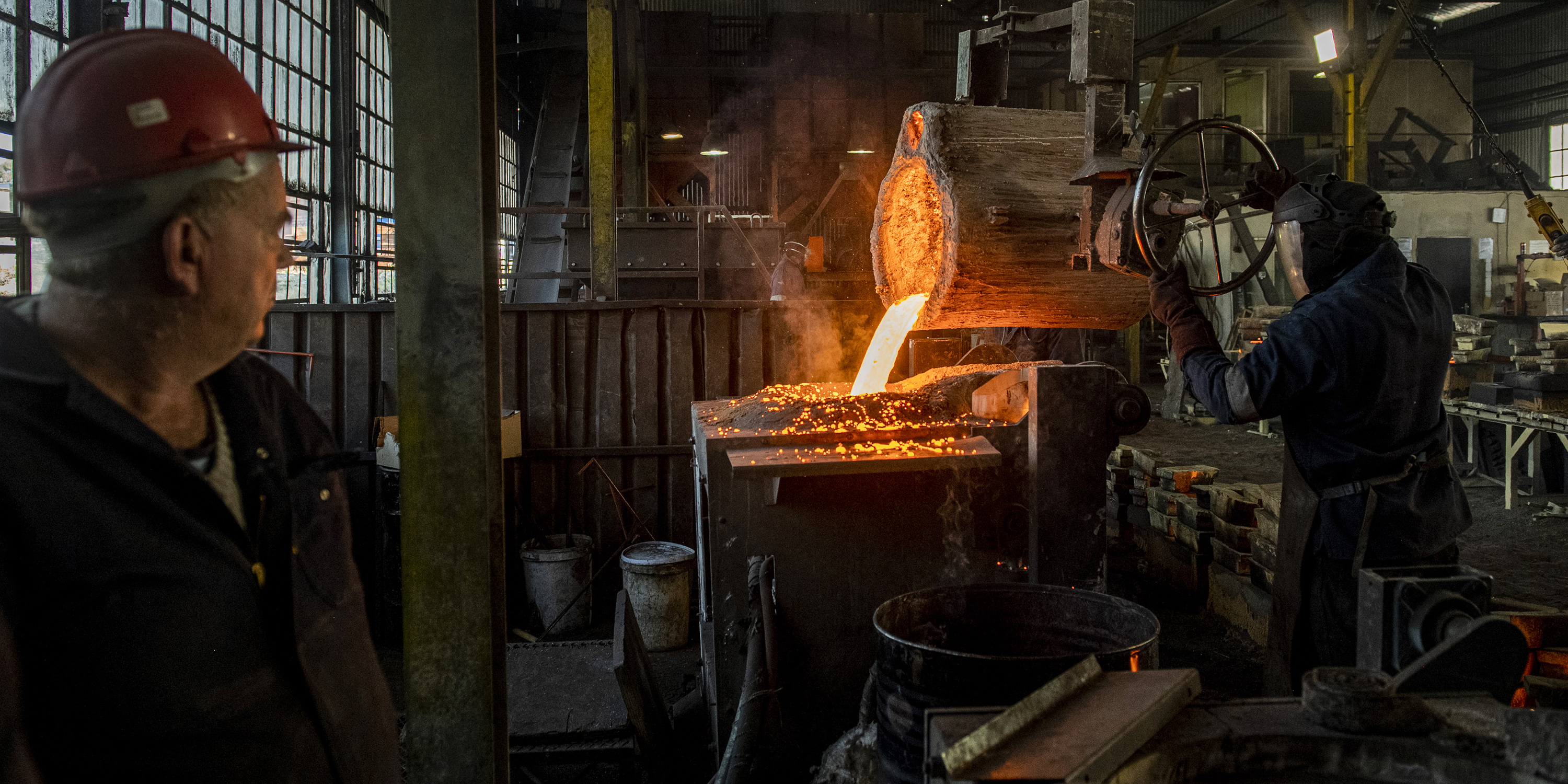The already fragile labour relations in SA’s steel and engineering industry are being tested further, with a key trade union and employer body not accepting or even endorsing to their members a recently concluded pay rise offer.
The conclusion of the agreement, which runs from 1 July 2024 to 30 June 2027, paved the way for a strike to be avoided over the next three years.
The last time the steel and engineering industry faced a strike was in October 2021, when steelworkers downed tools for nearly three weeks. The strike cost workers R200-million in lost wages as steel companies implemented a “no work, no pay” policy, and cost the industry more than R500-million in lost revenue.
Read more in Daily Maverick: The steel industry strike is over but at a painful cost to workers
Some trade unions and employer bodies in the sector struck a deal on a new pay rise agreement, which replaced an old one that ended on 30 June. The new agreement was endorsed by the National Union of Metalworkers of SA (Numsa), which speaks for the majority of workers in the industry, with the trade union describing it as “progressive” because workers will walk away with above-inflation pay increases.
From 1 July, workers (especially the lowest-paid with the least skills) have secured a pay increase of about 7%, to be followed by a 6% increase in 2025 and another 6% in 2026. Higher-skilled workers usually receive lower percentages.
At a headline level, the percentages of increases for the lowest-paid and least-skilled workers over the next three years are higher than the forecast inflation rates. The SA Reserve Bank and other economists expect the inflation rate to average about 5% in 2024 and ease towards 4.5% in the following two years.
Numsa’s general secretary, Irvin Jim, who is usually eager to embark on industrial action, has accepted the pay rise offer on behalf of the trade union’s members, saying that “despite the poor economic outlook, the union continues to secure increases that are truly beneficial to workers and their families”.
Arguably, Numsa is measured in pay rise negotiations because during the October 2021 strike it embraced a compromise by accepting a 6% increase from employers after initially demanding 8%. The 6% offer could have been accepted early by Numsa as employers had already offered it, which could have saved workers from another week of a strike and more lost wages.
The new pay rise offer was accepted in May by about 57% of the workers in the steel and engineering industry, including the 115,000 that Numsa claims to represent.
Disagreements over the new pay offer
However, the trade union Solidarity has not endorsed the pay rise offer.
The trade union argued that the offer is tied to the minimum rates of pay per job category or employment level and is not based on the actual pay earned by workers. In other words, the pay rises are made to seem like workers are getting a large increase when they are already negotiating from a low base.
“To base increases on minimum rates of pay would result in the skilled and experienced employees receiving an increase well below the Consumer Price Index [CPI or inflation], whereas entry-level employees would receive above-CPI increases, an offer which does not only have ethical implications but places the industry at risk of exacerbating a talent drain of scarce skills,” Solidarity argued.
Although Solidarity has not endorsed the pay rise agreement, its members are likely to benefit. The vast majority of workers in the steel and engineering industry have already received their first pay rise from July.
The National Employers’ Association of SA (Neasa), an employer body in the steel and engineering industry, has also not endorsed the pay rise agreement.
Gerhard Papenfus, the CEO of Neasa, told Daily Maverick that the employer body did not plan to sign the agreement in its current form.
Papenfus has always argued that pay rise negotiations should consider the financial situations of steel and engineering companies, and trade unions should moderate their expectations accordingly. He said that above-inflation pay would increase the operational costs of companies, affecting their financial situations and global competitiveness.
However, trade unions and workers are not willing to be sympathetic to the financial strife faced by steel companies. ArcelorMittal SA, the largest steelmaker in Africa, was on the verge of closing its steelmaking operations in Newcastle and Vanderbijlpark, which would have resulted in 3,500 job losses.
Read more in Daily Maverick: ArcelorMittal sees no way to avoid the closure of its steel operations in SA, and looming job losses
Kobus Verster, the CEO of ArcelorMittal SA, recently asked workers and their representative trade unions to embrace a compromise by not demanding inflation-beating pay increases. This would be one of the ways of cutting ArcelorMittal’s costs and, in the process, saving the factories from closure. However, Verster said the request to workers had proved unsuccessful, adding that a resolution on labour costs was still required. DM





